It starts May 12, and ends Oct 17. Let's see what you got!
https://polycount.com/discussion/237047/the-brawl²-tournament
Best Of
[FULL-TIME] [Remote] 3D Artist (Stylized, Toy-Inspired) 2-Year Contract, £30,000/year
Hi, I'm Emily from Blue Pixie Studio, a small, newly funded indie studio actively building a cute and colorful life-sim game with a distinctive, toy-inspired visual style.
The game has recently secured publisher funding, and we are now assembling a small, passionate team to help bring this playful, toy-inspired world to life!
We’re looking for a full-time remote 3D artist who can not only produce high-quality game-ready assets, but also bring strong creative judgement and visual taste to help the game consistently feel physical, playful, and toy-like.
Video of the game style: https://drive.google.com/file/d/1T6StlUlxsQT4DzPBlB-MsYqjXu7KVTTX/view?usp=drive_link
About the Role 🌟
The game has an established overall aesthetic direction: cute, cozy, and inspired by physical toys.
You’ll have creative input when designing assets, working collaboratively to ensure characters and props feel intentionally cute, playful, and toy-like. You will:
- Translate ideas into assets that feel intentionally toy-like, not just stylized
- Help ensure visual consistency across characters, clothing, props, and environments
- Ensure the models are game-ready and optimised
This is a hands-on creative role, where good visual instincts are as important as technical skill.
Responsibilities:
Characters & Clothing
- Create toy-style character clothing, hair and accessories
- Skin and weight meshes to an existing character
- Apply a consistent sense of scale, thickness, and construction appropriate for physical toys
Environment & Props
- Model environment props in a low-to-mid poly, toy-inspired style
- Create clean normal maps and ambient occlusion bakes
- Use simple, readable textures that suit a cozy life-simulation game
- Improve and rework existing props to better reflect a physical, toy-like construction and finish.
Textures & Materials
Create stylized textures, including:
- Toy-like surface details (seams, mould lines, subtle embossing, etc.)
- Toon-style eye expressions / facial elements
Animation
Create cute life-simulation animations, such as:
- Idle, walk, run
- Emotes and interactions
- General life-sim animations
What We Offer
- Fully remote, full-time role with flexible working hours
- Long-term stability (2-years)
- A meaningful level of creative input
- A small, passionate team
Please send:
- A link to your portfolio
- Any experience you have
- Where you are based
- When you are available to begin
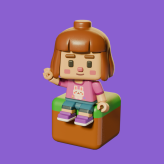 BluePixieStudio
BluePixieStudio
Re: Tech Artist - What are you working on: FOREVER Edition!
I don't want smooth and realistic and boring, I want my reflections to look like they're toon shaded as well.
so..
To get toon lighting you posterize the result of your lighting calculations. The obvious answer to this would be to do the same thing to your reflections.
sadly though, Godot does not let you get at the reflection calculations (neither do most engines afaik) so you must build your own.
Sampling a cubemap is simple enough so no problem there but then you're kinda knackered.
Making a nice toon style cubemap or posterizing a normal looking one kinda work but cubemaps exhibit a wide range of nasty artefacting (filtering/texel density etc.) and I don't like nasty artefacting.
Throwing resolution at the problem kinda works but not really
so - I became sad and angry
But then I realised that if I posterized the vector used to sample the cubemap I'd get what I want.
This isn't a 1 size fits all solution, but it works very well for what I'm trying to achieve.
it's really simple too - just calculate the vector as normal then floor( (v * levels) / levels) before sampling the cubemap texture



Racer445 AK Tutorial - does anyone have it?
Re: The Bi-Monthly Environment Art Challenge | November - December (99)
I'm really happy with it! I could've kept pushing but overall I'm proud of where it is right now (trying to be deadline-driven, not focusing on perfecting all the details... plus the point was to finish and I did!)
Here are some renders I did within Substance. I was going to try to render in Unreal but I think I'm going to have to save that for later.
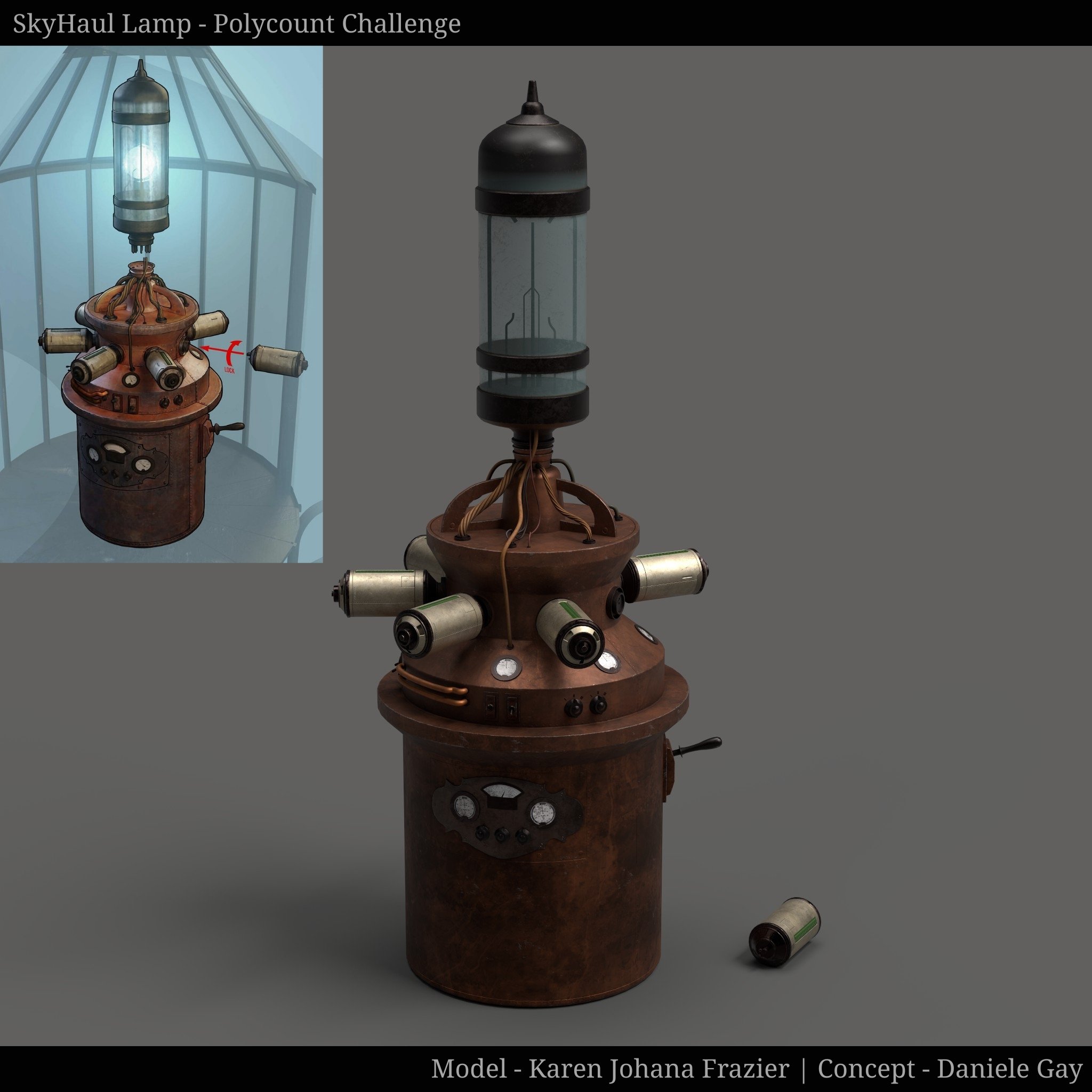
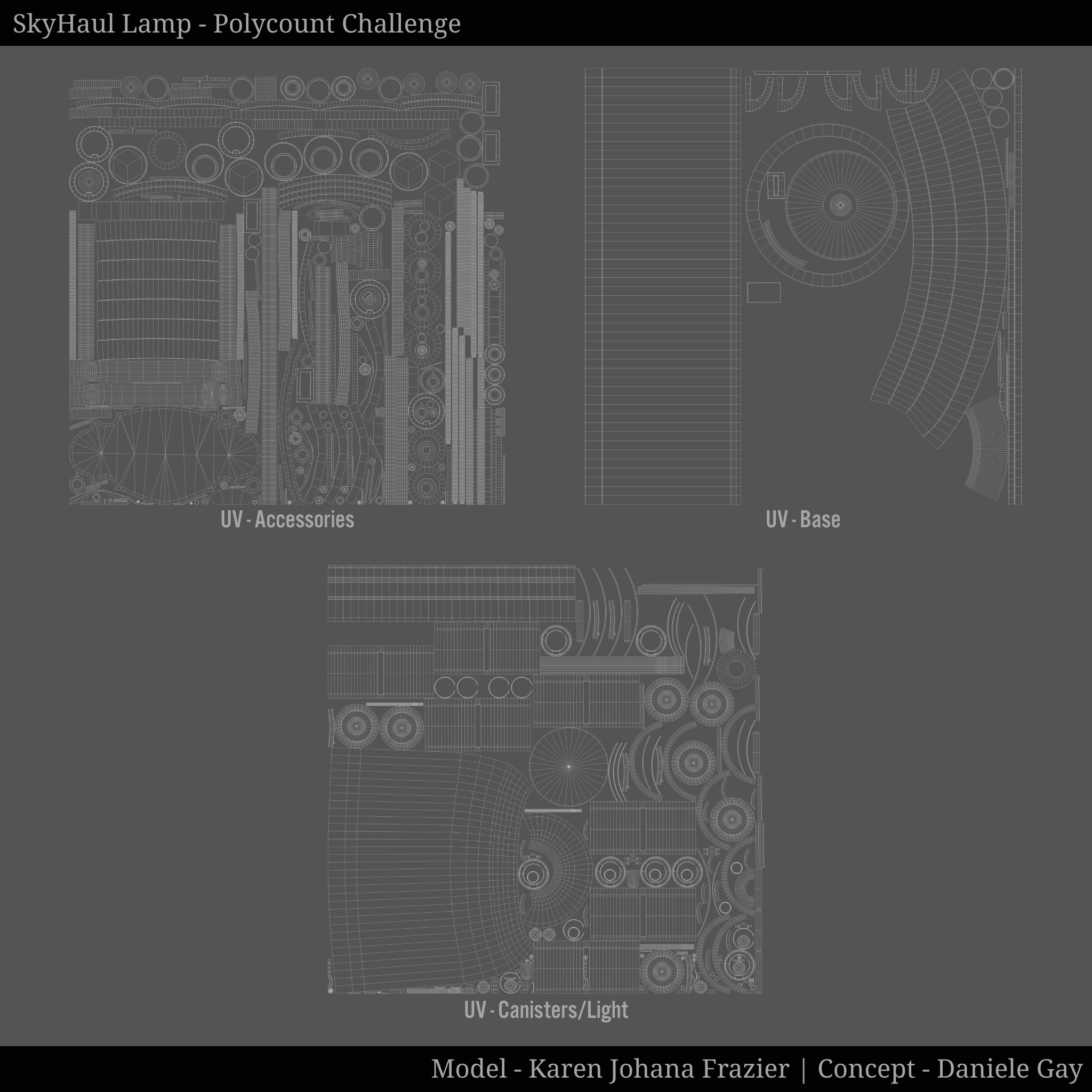

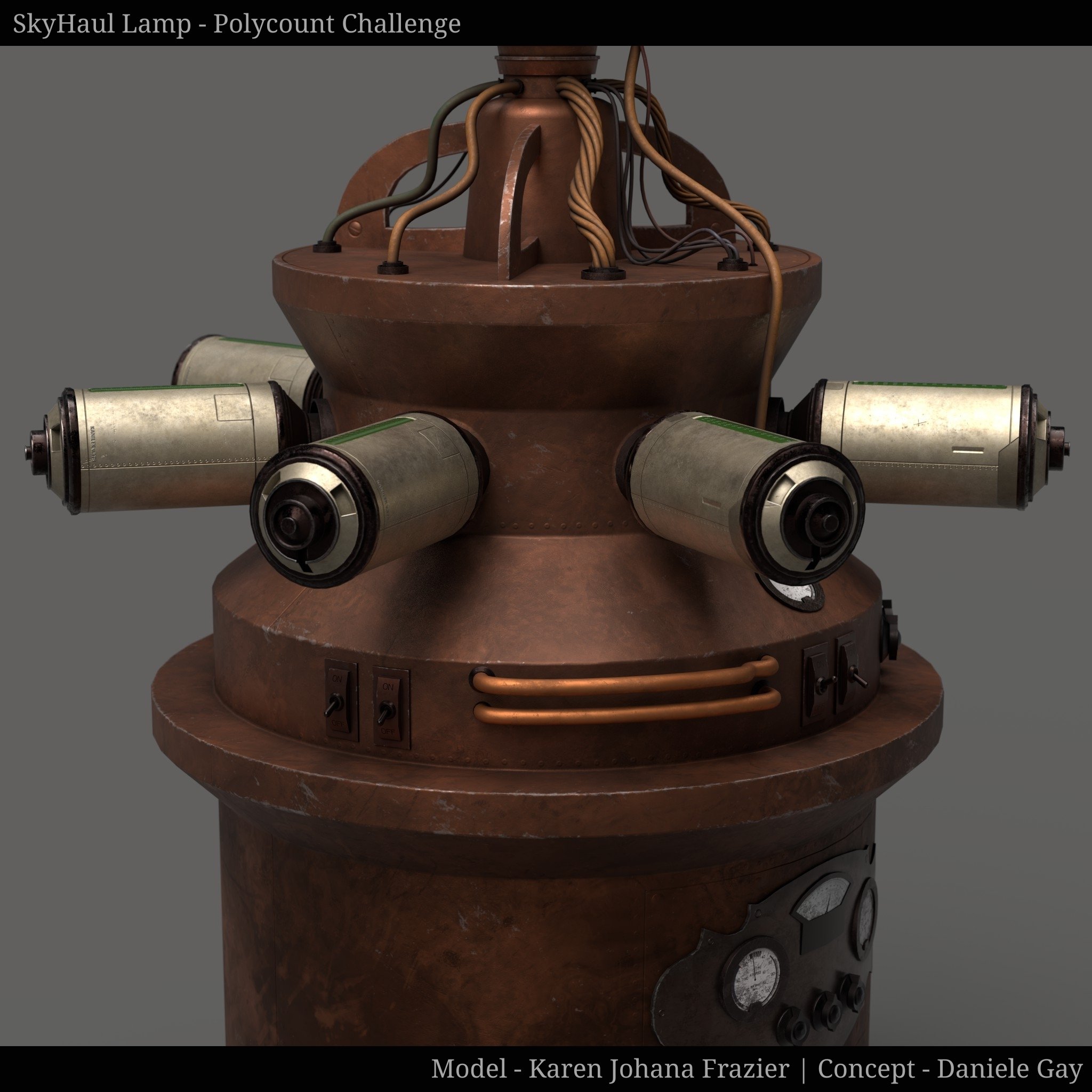
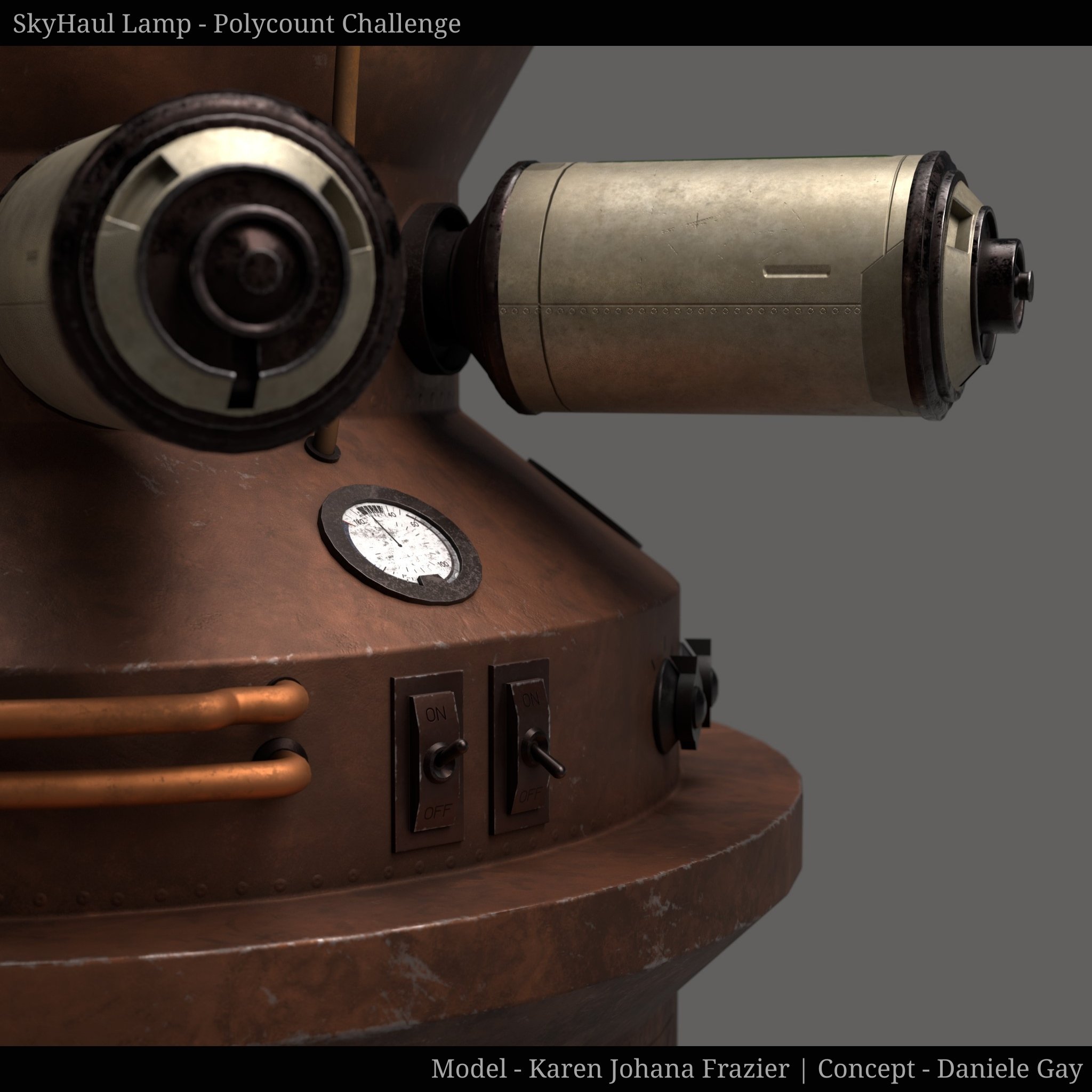
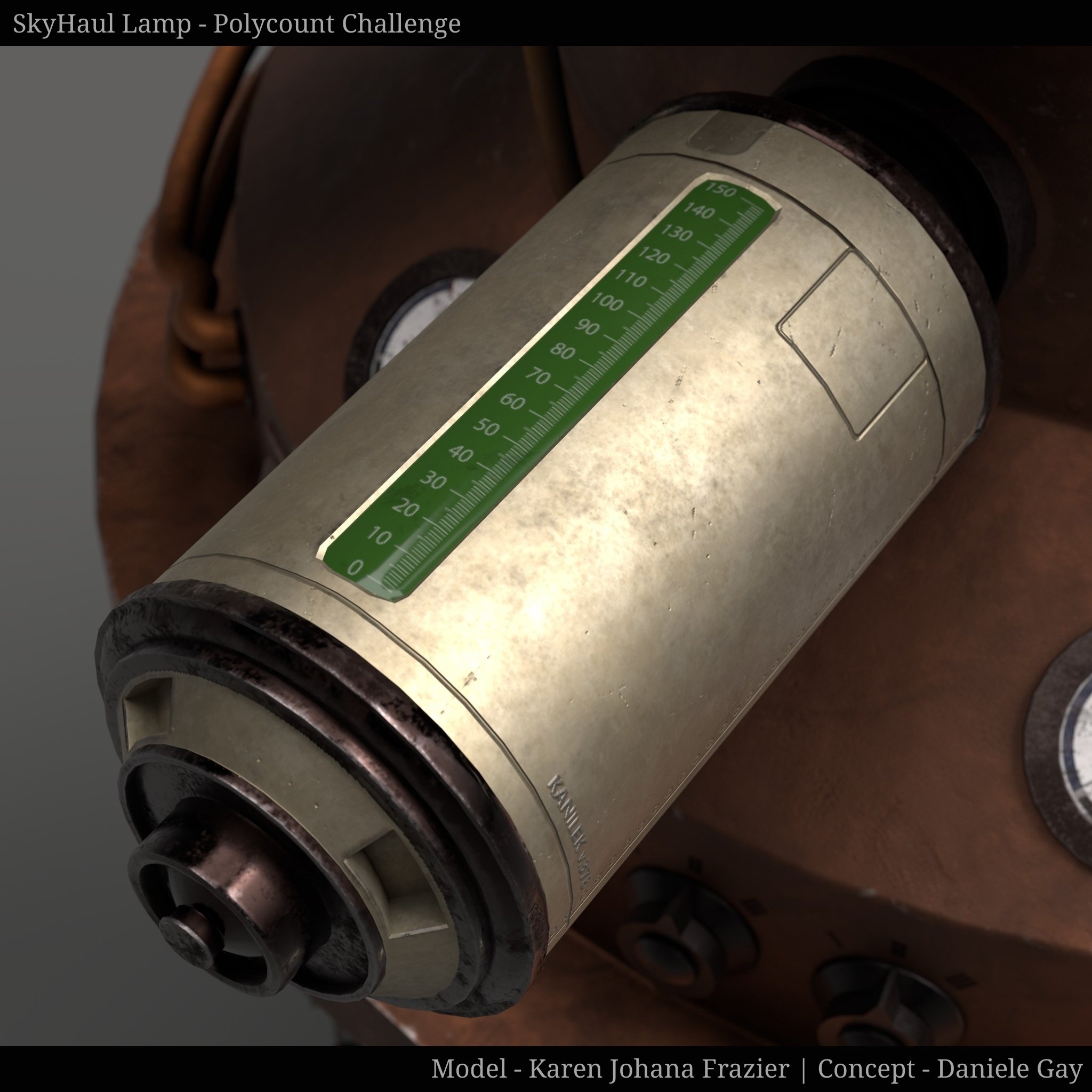
I just uploaded to artstation so if you want to see more renders please check it out: https://www.artstation.com/artwork/RKxabv
It was my first time doing a challenge online and this was honestly really fun. Thank you @Fabi_G and everyone who's been quietly cheering us on!
Happy winter solstice everyone! Happy New Year!
 fairlyBread
fairlyBread
[PAID] 3D Hard-Surface Artist — Stylized PBR Sci-Fi Factory/RPG (Unity/PC)

Re: Show your 3D Prints!
https://www.artstation.com/artwork/zPbP8m


 GmsDiego
GmsDiego
Re: What Are You Working On? (3D) 2022
Not really a game ready character, but something I've been working on nonetheless.
Consider visiting the Artstation page for higher resolution renders, a turntable and additional information! https://www.artstation.com/artwork/d0BayK
 Dihemi
Dihemi
Re: AI Usage in Indie Games
An indie company will start with a high amount of reputation in their wallet due to being an underdog, but a low amount of dollars. Using AI will 100% damage an indie studio's reputation to the point where it negates the reputation boost of being an underdog. There are negative reviews on the game at my work purely because we used AI, despite my warnings
 zetheros
zetheros
Re: Greentooth Sightings in Videogames

 Lamont
Lamont
